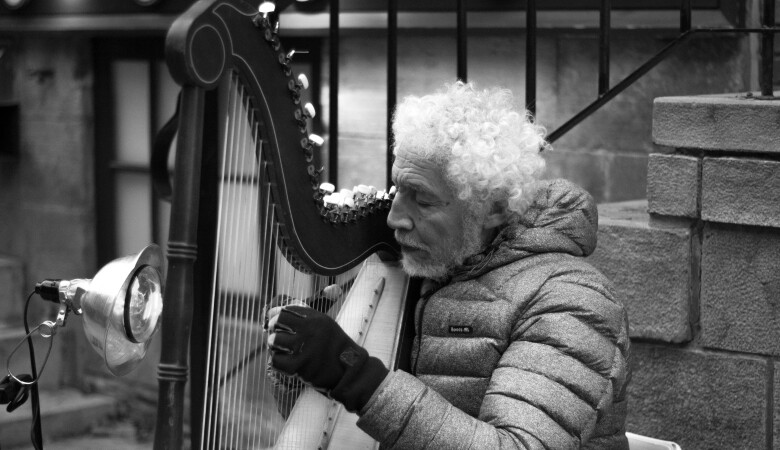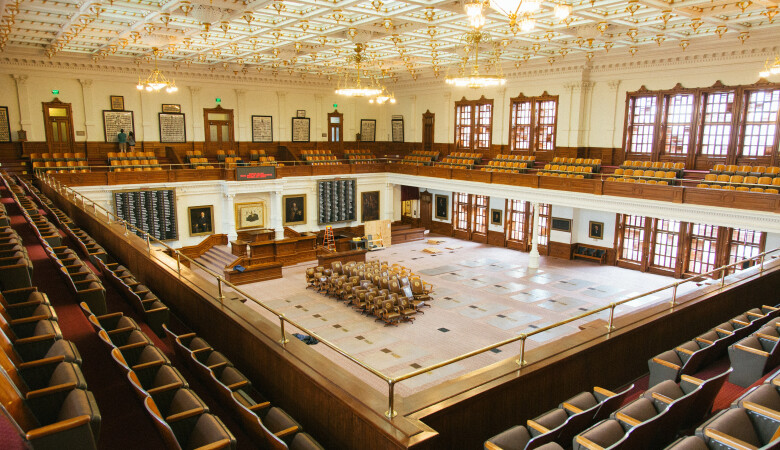The Heart of a True Christian: The Beatitudes, Part 1 (Matthew Sermon 7 of 151)
February 07, 1999 | Andy Davis
Matthew 5:1-4
Joy, War Against the Flesh, Works of the Flesh, Repentance, Humility
I. Introduction
We can't live up to this. And then in chapter 6 it talks about our relationship with God and how we live that out in our religion. It talks about our heart righteousness, as you remember. The whole thing concludes in chapter 7 with a challenge that Jesus has to enter through the narrow gate, to listen to the Good Shepherd or the good teachers, that bear good fruit, to follow that right road and ultimately to build your house on a solid foundation. It is an invitation to respond. “Everyone who hears these words of mine and puts them into practice is like a wise man who builds his house on the rock.” “But everyone who hears these words of mine and does not put them into practice is like a foolish man, builds his house on sand.” That is the whole Sermon on the Mount. But I think the whole key to it is understanding these first few verses, what we call the Beatitudes.
Now, I got some insight into this when I went as a missionary to Pakistan. In 1987, I was a missionary there. And I saw some things there that I had never seen before. Last week, I talked about how much I love mountains, and I saw the majesty of the Karakoram Mountains, over 20,000 feet high most of these mountains, absolutely spectacular. But I also saw some things at the human level that I had never seen before, and I had seen beggars in America, but not like these. These people were remarkable in their neediness. Some of the most needy people I had ever seen were these Afghan refugees who came across out of their war-torn country, ran for their lives and literally had nothing when they crossed the border into Pakistan. But I saw another kind of beggar when I walked through the streets of Peshawar, the city where we were working. And people would come right up to us and they would mutely point to their stomach saying they were hungry. And they couldn't speak English. So they would point that way, and we all knew what that meant. The person is coming, saying, "I'm hungry give me something."
Well, we were warned by the missionary there that there were different kinds of beggars. Some of them were organized into a whole system, and they were actually doing quite well. And it was really kind of shocking to learn that, a lot of the kids, for example, gave their money to an organizer and they would see only barely enough to survive, very tragic. But then there were other beggars who were genuinely needy. So what I decided I would do was, instead of just giving them money, if I had some errands to run in the city, the first thing I would do is I would buy some bread, some Pakistani bread. They were round loaves about this thick. Absolutely delicious, steaming hot, wonderful. I would bring with me a bag full of these loaves of bread. And if a beggar would come to me and point to his stomach saying, "I'm hungry," I would smile and I would pull out the bread. That immediately weeded out the true from the false beggar.
The false beggar would get angry at me, would push the bread away and want money. That is what they wanted, not bread. But yet they would come to me pointing to their stomach saying they were hungry. Well, that is easy to deal with. You just dispense with them and you say in a way, "Oh, it’s just a sham," right? "There are no true needy people." That is not true either, because a lot of the beggars, when they saw the bread steaming hot, their eyes would get wide as saucers, and they would grab it immediately and begin to eat it. Now, they were genuine beggars, weren't they? And they had true needs. So I would take another out and give it to them for later. But I will never forget that look of hunger in their eyes as they were begging. Now, the thing that is shocking about Jesus is He is talking here about the Kingdom of Heaven. He is the King of Israel, is He not? And He is describing what kinds of people are going to be in His Kingdom. And He begins by saying something as shocking as blessed, blessed are the spiritual beggars, in effect, for theirs is the Kingdom of Heaven.
And so Jesus is pointing the way with this series of beatitudes, blessings, to what kind of person is truly blessed, what kind of person is truly happy in this world. Listen to the beatitudes. We are going to look carefully at just the first two, but I would like to read all of them together so we see how they fit together. Beginning at Matthew 5:1: "Now when He saw the crowds, He went up on a mountainside and sat down. His disciples came to Him and He began to teach them, saying, 'Blessed are the poor in spirit, for theirs is the Kingdom of Heaven. Blessed are those who mourn, for they will be comforted. Blessed are the meek, for they will inherit the earth. Blessed are those who hunger and thirst for righteousness, for they will be filled. Blessed are the merciful, for they will be shown mercy. Blessed are the pure in heart, for they will see God. Blessed are the peacemakers, for they will be called sons of God. Blessed are those who are persecuted because of righteousness, for theirs is the Kingdom of Heaven. Blessed are you, when people insult you, persecute you and falsely say all kinds of evil against you because of me. Rejoice and be glad, because great is your reward in Heaven, for in the same way they persecuted the prophets who were before you.'"
Now, that's what we call the Beatitudes. The word Beatitudes comes from the Latin word for blessing, beatus. And it's put together because Jesus says, "Blessed, blessed, blessed", one after another. Now, in order to understand this, we have to understand what the word blessed means. Some pastors and some commentators simply translate it, happy. Happy are the poor in spirit. Happy are those who mourn, etcetera. And I think that is a valid translation, but I don't think it goes quite deep enough. I think what I would like to do is take a step back from that, because sometimes we say, "Blessed be the name of the Lord," don't we? We say, "Blessed be God." So we could say, "Happy be God," or, "Let God be happy," and that's in one sense, but I think it goes to a deeper level of approval, "Let God's name be approved and honored," is what we are saying. And this works back this way. Approved by God, and therefore happy, are the poor in spirit. Approved by God and therefore happy are those who mourn. Approved by God and therefore happy are the merciful, etcetera. That is how it works. God approves of these kinds of people.
Remember that man, human beings, look at what? The outside, the externals. But God looks at the heart and every single one of these things are heart issues, aren't they? How do you feel to have the searchlight of God come on your heart? Well, the beatitudes accomplish that, don't they? It brings the searchlight of God right into who you really are, so that we can get to know what God says is approved and blessed and happy.
The quest for happiness… universal concern
Now, the world is seeking happiness, isn't it? There is no question about this. I do not think you can get through maybe three or four commercials without hearing the word happy in there somewhere. I was watching the Super Bowl, as many of you were, I'm sure. And you saw that ad perhaps for BMW, the ultimate driving machine. Do you remember what it said? It said, "Happiness is not just around the corner, happiness is the corner," right? Well, what is it that they are saying? They are saying, if you have the ultimate driving machine, you are going to be happy while you are driving around the corner. Of course, the corner they show is Pacific Coast 1, that spectacular stretch of highway, in which there is just ocean on your left and mountains on your right. Anybody could be happy driving around a corner like that, no matter what you are driving. They don't show him driving around the corner of a slum or some other place, that is not so exciting. But this is the whole image, right? Of happiness.
The world is promising happiness. But what I have noticed about worldly happiness, it is always tied to external circumstances. If you have good circumstances, you can be happy, if you have bad circumstances, you will probably be unhappy. Jesus is talking here about a heart happiness, the kind of joy that goes to the core of who you really are, and it comes from who you are. It has nothing to do with your circumstances. It is tested by your circumstances, it is demonstrated within the context of your circumstances, but it is not caused by your circumstances. It is caused by a right relationship with God through Jesus Christ, but that is the beauty here. Blaise Pascal, who was a French philosopher, said, "All men seek happiness, this is without exception. Whatever different means they employ, they all tend to this end. The cause of some going to war and of others avoiding it, is the same desire and both attended by different views. The will never takes the least step but to this object, the motive of every man, even of those who hang themselves is to be happy." And that is true. We all have a yearning to be happy.
Jesus here does not deny that. He doesn't say it's bad. He just shows you the path to true happiness. He wants your happiness on a solid foundation, on a rock, not on sand. And He is going to show you how, and it is not a short cut. Perhaps it may even seem a little gloomy. “Blessed are the [spiritual beggars] for theirs is the Kingdom of Heaven.” “Blessed are those who mourn for they will be comforted.” It is God's way, though, it is not our way. Now, I want to tell you the general lessons of the Beatitudes before we go into the individual ones. I think the Beatitudes teach us three different lessons. The first lesson is that all Christians are to be like this. This is not just to be for super Christians or special Christians or what the Catholic church calls saints, namely those special people. We are all, according to Ephesians, saints. But the point is that this is to be characteristic of all Christians. How do I know that? Well, it has to do somewhat with the technicality in the Greek language, you could say, "Blessed are the poor in spirit for theirs, [and theirs only] is the Kingdom of Heaven." There is an intensification.
Beatitudes are a survey of true Christian character
Theirs and theirs only is the Kingdom of Heaven. Also, there is an inclusion here, isn't there? Verse 3, "Blessed are the poor in spirit for theirs is the Kingdom of Heaven." And then at the end, "Blessed are those who are persecuted because of righteousness," for what? "Theirs is the Kingdom of Heaven." There is an inclusion here. This is to be characteristic of all of us, all Christians are to be characterized this way. If you are going to be in the Kingdom of Heaven, these things will characterize you.
The second general lesson is that all Christians are meant to manifest all of these characteristics, all of the time. All, all, all. All Christians, all of the these things, all the time. How do I know that? Well, I know that generally from Matthew 5:48, "You must be perfect therefore as your Heavenly Father is perfect." But I think the thing is they fit together so beautifully. And we are going to see that as we study these more over the next two or three weeks, the Beatitudes fit together beautifully.
It starts out with humility, a brokenness of spirit, that leads to mourning over sin. The mourning leaves you meek. You are not the kind of person who is going to dominate or crush other people, because you yourself have been crushed by your own sin. You are not in a position of dominance, you are in a position of meekness, and you are not going to take advantage of others, you want to see others advance ahead of you. All of this leaves you hungry and thirsty, though, for righteousness, you are hungering and thirsting after righteousness that only God can give. That's very linked, isn't it, to being a spiritual beggar? It's a beggar that is hungry and thirsty, and only God can satisfy. Well, that leads to being merciful, doesn't it? Somebody who receives mercy is merciful; if you have not ever experienced mercy, you can't be merciful to someone else. We will talk about all these more in detail, but I am trying to give you the general flow here and how beautifully they fit together.
This leads to purity of heart, a purity in your heart means no alloy, no mixture. There is a single-minded devotion to God, a single-minded devotion to Christ and to purity and holiness, a yearning after Him. Hungering and thirsting after righteousness says, "You'll be filled." What does it mean to be filled with righteousness? To be pure in heart. And if you are pure at heart, you are going to see God. Boy, I can't wait to preach about that a few weeks from now. Pure in heart leads to a desire to be a peacemaker.
What is a peacemaker? Somebody who brings the peace of Christ out into the world. There is at this point, an outward focus, you are beginning to reach out. Yes, it is a matter of preaching the gospel. Yes, it is a matter of bringing people to faith in Christ, but you are also bringing peace to troubled hearts, you are bringing peace to every situation, peace in a conflict with someone. Now, if you are that kind of peacemaker, what is going to happen to you in the world? You are going to get chewed up and spit out, you are going get persecuted. That is what happens to peacemakers. Jesus was a peacemaker, and He was crucified. So you are going to get persecuted, but you are going to rejoice in the midst of your persecution. And look, at every step, it is blessed, blessed, blessed, blessed. You are happy through the whole thing, you have a blessedness through all of it, but it is a real happiness, a genuine blessing, one that comes from God.
All Christians are to manifest these characteristics all the time. Now, we know that because of the power of sin in us, we are not going to see it perfectly manifested in this world, but that is the goal, and that is what God is working out in us. We are going to see these characteristics growing in us and moving in us consistently. This is what God wants to do in you if you are a Christian. Isn't that beautiful?
And the third is, none of these characteristics, none of them are naturally part of who you are. None. The sin nature is naturally very prideful and self-reliant. Naturally, you are not going to say, "I need you, God. Please help me," etcetera. Naturally, you are going to think, "I can do it myself." You are going to be self-reliant. The American culture as a whole honors that kind of self-reliance, but God does not. These are not natural characteristics in us. This kind of humility and brokenness, mourning over sin, hungering and thirsting after righteousness, these are only coming to us by the power of the Holy Spirit. He produces them in us. They are not natural. Those are three general lessons of the Beatitudes, but I think also we see a fundamental difference here between a Christian and a non-Christian. There is a distinction here between the heart life of a Christian and the heart life of a non-Christian. Christian and non-Christian are absolutely different. For example, in what they admire.
A Christian admires a broken hearted spirit. A Christian admires a truly, genuinely humble person, don't we? We admire somebody who is meek before the Lord and who has that kind of sense of being a broken vessel. Non-Christians admire the self-made man, the one who is able to dominate, the one who is able to win every free throw contest, let's say, or able to just take their superior power and dominate people. That is what we admire in the world. Now, Christian and non-Christian are also different in what they yearn after, what they hunger for. We hunger and thirst after righteousness. The world hungers and thirsts after some kind of benefit here in this world, whatever it is. It may be material possessions, may be honor or respect, something. But it is always tied to something here in this world. Christians and non-Christians are also different in how they live, what they do. And what world we live for. If you are a Christian, you do not live for this world, you live for the next world. You are storing up “treasures in Heaven, where moth and rust do not destroy, and thieves do not break in and steal.” That is the world you are living for. A non-Christian is living for this world and this world only. You see the difference, all of these come naturally out of the Beatitudes.
The bottom line is that we belong to an entirely different kingdom, than the kingdom of the world. There are two kingdoms in this world. There is the Kingdom of Jesus Christ, called the Kingdom of Heaven or the Kingdom of God. And then there is the kingdom of Satan, the kingdom of darkness. And blessed be God, may the name of the Lord be praised. Colossians 1:13 says if you are a Christian, that He has transferred you out of “the dominion of darkness, [the kingdom of darkness] and brought you over into the kingdom of the Son He loves.” Praise God for that. You have been transferred into a new kingdom and this is what God will work in you as a result. So that's a general overview.
II. The Beatitudes
"Blessed are the poor in spirit, for theirs is the Kingdom of Heaven."
Let's look more carefully now at the first Beatitude. “Blessed are the poor in spirit for theirs is the Kingdom of Heaven.” Now, talking to a number of you about this, I have asked you, I said, "What do you think that this means?" And many of you have said, "Actually, I have no idea what it means. I don't know what it means to be poor in spirit." It actually is somewhat of a troubling phrase. It is a little bit difficult to understand. Well, let me begin by telling you what poverty of spirit is not. First of all, poverty of spirit is not material or financial poverty. There is a strain of theology going around today called "liberation theology," and it says that basically, God loves those who are materially poor in this world, those who have nothing in this world. He loves them as such because they are such. And God conversely hates the rich or hates the wealthy, because they are wealthy. But the Scripture says there are sinners and righteous people in both categories. Now, Jesus made it very clear, material possessions are a hindrance not a help in entering the Kingdom of Heaven. You have to actually get past that obstacle in order to come into the Kingdom of Heaven. But just because you are materially or financially poor does not mean you are in the Kingdom of Heaven. So it's not that.
It also is not a matter, for example, of poverty of spiritual awareness, blessed are the poor in spirit does not mean, for example, blessed are those who never have a single thought spiritually. People who never think about spiritual things. The Bible calls you dead if you are that way, spiritually dead, Ephesians 2, dead in your transgressions and sins if you never have a single thought spiritually. So it's not that.
It is not a matter either of poor spiritedness. Have you ever talked about somebody being a high spirited horse or a high spirited girl or something like that, high spirited boy. What it means is that they have a lot of energy, a lot of vitality. Well, then, conversely, poor spiritedness would be somebody that is kind of dragged out all the time, lacking vitality, lacking energy. It is not that either. It has nothing to do with your disposition and how you carry yourself with people, and it certainly is not poverty of the Holy Spirit. Well, if it is not all those things, what is it?
I think the best way to look at it is to translate this properly, as I have, blessed are the spiritual beggars for theirs is the Kingdom of Heaven. Now, the Greek language had two words for poverty. One would be the poverty of, for example, that widow, you remember, that Jesus watched put two pennies into the offering. It said that she was poor and the Greek word used there is not the word used here. It meant that she had something. She was not a beggar yet. She still had something to give, something to live on. Now, Jesus said she gave it, but the point was that she had some kind of means, there were some resources in her life, however meager. That is not the word used here.
The word used here is of a beggar, somebody who Jesus interacted with all the time in His ministry. Remember the blind man sitting by the side of the road, crying out, "Lord, son of David, have mercy on me," remember? And he is crying and all the crowd is saying, "Be quiet, be quiet." And he would shout all the louder, "Lord, son of David, have mercy on me." That is a true beggar, and that is the word used here. It is somebody who looks inward and finds, spiritually speaking, no resources whatsoever with which to meet Judgment Day. No resources whatsoever to face God. You have nothing to commend you when you come into the court of God, nothing to carry, nothing to bring, nothing to offer. You simply have nothing. You are spiritually bankrupt. That is a rather stark expression that Jesus uses, isn't it? He said, "If you want to enter my Kingdom, you come in empty, not full". You come in needy. Not demanding, you come in with your need exposed and you say, "God, give to me what I need." "Ask and it will be given to you," Jesus said, "Seek and you will find, knock and the door will be opened to you." That is spiritual neediness. That is being a spiritual beggar.
Jesus told a parable of this, the parable of the Pharisee and the tax collector. You remember it. These two men went into the temple to pray. And one of them said, "I thank you, God, that I am not like other men… I fast twice a week and I [give tithes and I'm righteous every day and I'm especially not like this tax collector over here, who is praying. I don't even know why he's here.]" Okay, that is the attitude of the Pharisee, you remember? But the tax collector stood a distance off, would not even look up to Heaven. He had a downcast expression and he “beat his breast and said, ‘Lord, be merciful to me, a sinner." That is a great picture of spiritual poverty and its opposite. It is a matter where you come to God for mercy, broken before Him because of your sin.
David, after he sinned, committed sin with Bathsheba, all that time he hid his sin, would not deal with it. And he wasted away physically. I think he was under some kind of illness, struggling with this whole thing, because he would not admit that what he did was wrong. And when he finally came clean with it, when he finally admitted it, he said, "The sacrifices of God are a broken spirit, a broken and contrite heart you will not refuse." That is what it means to be poor in spirit. David hid his sin and he wasted away. When he finally confessed his sin, he could say in Psalm 32, "Blessed is the man whose transgressions are forgiven, whose sins are covered. Blessed is the man whose sin the Lord will never count against him [in any way]." That is the joy that Jesus offers here, but it starts with brokenness.
Now, where does this poverty of spirit come from? Where does it come from? Well, it doesn't come from anything you do to yourself. You cannot make yourself feel this. You can't say, "I want to feel this poverty of spirit that the pastor was talking about." There is nothing you can do. First of all, you are certainly not going to do it by making God's law attainable, by lowering the standards. That is what the Pharisees did. They said, "Well, yes, it seems like God saying this but what He's really saying is this over here," and they brought the standards down. We will get through this when we get to the rest of this chapter in Matthew 5. They lowered the standards because they did not realize God was looking at the heart. And the Pharisees, therefore, were able to say to Jesus, "I've kept all of God's law my whole life every day." Well, that is not going to produce poverty of spirit, is it? That is actually going to produce pride. Neither is it going to come from some kind of self-hatred or mutilation or some of the things that the monks did out in the desert trying to scarify their flesh and get themselves into some certain situation. It is not going to come from false humility or faking it 'til you make it, something like that. There is nothing you can do to produce this. Remember I said at the outset that none of these characteristics are things we can do to ourselves.
Well, then, where does it come from? It comes from the Holy Spirit. When you come face to face with God in this book, that's where it comes from. You read about God, you find out what He is like, about His holiness and His righteousness. You find out what His standards are, and you are broken apart by it. You become like Isaiah. Where you say, "Woe to me… I am ruined. For I am a man of unclean lips, and I live among a people of unclean lips. and my eyes have seen the Lord, the King." And you realize you could never survive on Judgment Day, not without a savior. That is where it comes from. It comes from the Holy Spirit working through His word. And you see the perfect order now to the Sermon on the Mount. This is the key to everything. If we are broken and humble, we are going to be begging God for everything we'll find in chapter 5, chapter 6, chapter 7. Time and again, and as we preach this I'm going to bring you back again, remember 5:3, remember 5:3. If you say, "I can't do this," I'll say, "Just go back and beg for it. Beg for it, come to God and say, 'God, do this in me. I can't do this myself, work it in me.'" Hunger and thirst for it and He'll do it in you. That's where it comes from.
But it is not going to come through your own efforts. Martin Lloyd Jones said this, "How does one become poor in spirit?" The answer is you don't look at yourself or begin by trying to do things to yourself. That was the whole error of monasticism. Those poor men in their desire to do this said, "I must go out of society into the desert. I must scarify my flesh and suffer hardship. I must mutilate my body". No, no, the more you do that, the more conscious you will be of yourself and the less you will be poor in spirit. The way to become poor in spirit is to look at God, read this book about Him. Read His law, look what He expects from us. Contemplate standing before Him on Judgment Day. It is also to look at the perfection and the quality of Jesus Christ, and to view Him as you see Him in the gospels. That is where poverty of spirit comes from.
Now, what are the rewards of poverty of spirit? Well, it says, "Blessed are those who are poor in spirit, for theirs is the Kingdom of Heaven." So there is a reward really at the front and the end of the verse. Blessed means approved by God and therefore happy. So you get a sense of joy and happiness now, in your begging. A sense of expectancy that God will give you everything you ask for because you asked according to the name of Christ and according to His purposes. You are going to get it all, given to you as a gift. And you are going to get the Kingdom of Heaven. What does that mean? It means eternal life. It means when you die, you go to Heaven and see Jesus face to face and live with Him forever. It means here in this life you have a King who will guide you through all the difficulties of life. You have everything you need given to you because you are a spiritual beggar. What an incredible reward for those who are willing to humble themselves.
"Blessed are those who mourn, for they will be comforted."
The second Beatitude follows logically from the first. "Blessed are those who mourn, for they will be comforted." Now, how many of you have seen this on a Christian sympathy card? Matthew 5:4. I'm sure you have. I've seen it, "blessed are those who mourn, for they will be comforted." Please don't get me wrong. God wants to comfort those who mourn when they are mourning. But this verse is not about that kind of mourning or about that kind of comfort. Those comforts come from other places in scripture and we should read them. 1 Thessalonians 4, "I don't want you to grieve like those who have no hope," said Paul there. There is a comfort in 1 Thessalonians 4 for those who grieve over a lost loved one. But this is not about that kind of grieving. This is about grieving over sin. "Blessed are those who mourn [over their sin], for they will be comforted."
Now, I must tell you, in bringing late 20th century, almost 21st century Americans to this verse, I am bringing you to a total counter culture from what it is we want. We are in an entertainment culture, aren't we? We want light-hearted, easy things that make us laugh. I was looking recently at the Christian book distributor catalogue for pastoral resources. I came across the section on preaching, and they feature books. They will put a number of books up there and then they have a long list of others. Of the books they featured, over half of them had to do with jokes, stories, illustrations and this kind of thing. Why is that? Because it is easy to listen to. It is. It is fun to listen to that kind of thing, but it doesn't change your heart at all. I could stand up here and give you half an hour of wonderfully exciting illustrations and stories, but none of them would change your life. You'd go out just the way you came in here. But Jesus has something deeper to say to us today. Deeper than that. And it is not a matter of entertainment; actually, entertainment may be the last thing that we need.
I was reading an article recently about Lawrence Taylor. He was a football player who recently was inducted to the Hall of Fame. Now, Lawrence Taylor ran into some difficulties. Repeated arrests for drug charges, he pled guilty to filing false federal tax forms, declared bankruptcy. So all these difficulties had come to light. The real interesting thing, though, here about Lawrence Taylor was his attitude, and this is something that really, I found really kind of scary, almost. It says that he said, "I don't apologize for anything. There are some things in all of our lives we wish we could change. Unfortunately, we can't do that. The past is the past. I can't worry about it." Now, I'm sorry for Lawrence Taylor, because I have come to the conclusion in my Christian life that unless I mourn over sin, a specific sin, unless I mourn over it, I will do it again and again and again. And it is not until I really grieve over it that I begin to see changes in my life. Mourning over sin.
Neil Postman wrote a book called Amusing Ourselves to Death. I don't know if any of you have seen it. In that book, he says that the 18th century America was kind of summed up or symbolized by the city of Boston. The Revolutionary War spirit, late 1700s, we were in a revolutionary war against England. And in the suburbs of Boston, there is a statue there, the statue of the Minute Man. He has his hand on a plow and he has his other hand on a rifle, ready to go at a minute's notice. That summed up America in the late 1700s. In the 1800s, said Neil Postman, he felt that what summed up America, especially for the first two-thirds of the century, was the city of New York and specifically the Statue of Liberty, welcoming immigrants from all over the world at Ellis Island. And that statue symbolized the booming country as we had more and more immigrants coming in and becoming Americans.
He said that at the end of the 1800s and into the early part of the 1900s, the city of Chicago summed up America with its sprawling westward strength and economy. Railroads and meat butchers, butchering meat and sending them to various places and all that. And he said he would like to see, he does not know if there is one, but a statue of a meat butcher in Chicago symbolizing that era, that phase of our country. He said, though, in the late 20th century America, there is a city that sums up what we are all about. It is the city of Las Vegas. Las Vegas. Now, Las Vegas exists for one reason and one reason only, entertainment, amusement. And he said the statue would therefore be a 30 foot high cardboard cut-out of a showgirl and a one arm bandit gambling machine. That would sum up where we are at right now. Entertainment.
He entitles his book Amusing Ourselves to Death. You know what the word amusing means? It means to not think. To muse over something means to ponder it, to consider it deeply. To amuse means to not think about it. Why do people not want to think? Because thinking hurts. When they think about things, they feel their sin, they feel their weakness, they begin to hurt and what they do not understand is to anaesthetize that hurt is to turn away from God's path of healing. We are supposed to find out what the pain is in our lives and deal with it directly, to deal with the sin. And Jesus is not going to deal with it by entertaining us or amusing us. He is going to deal with it by telling you what you need to do to be healed. And what you need to do to be healed from sin is to grieve over it, to mourn over it and not deal with it lightly. That is what Jesus is saying here. Blessed are those who mourn for they will be comforted. It is mourning, it is a personal grief, strong emotional reaction over personal sin.
And I was talking to somebody earlier about emotions. Emotions are part of your heart. The second Beatitude says you should have an emotional reaction to your spiritual state. And the emotional reaction should be mourning when you are in sin. I fear too easily we go through our lives, and we never deal with our sin. We confess it quickly, we say a quick, "I'm sorry," but we don't want to deal with it. What Jesus says is go alone before God and dig deep until you feel what God felt about that sin. What God feels about that sin is grief. So should you. And so He says that we should mourn over our sin. Jesus was a man of sorrows and familiar with suffering. And I think it is significant that we see numerous examples of Jesus weeping, but no examples of Jesus laughing. Not in the first coming. In the second, He will laugh and rejoice with His beloved ones, but now is a time for dealing with sin and dealing with it honestly.
The Christian is a true realist. Death is there and must be faced. God is there and He will be known either as Savior or as Judge, one or the other. Eternity is there and every single human being is rushing quickly toward it. It will come on us soon. God's revelation is there and it clearly preaches all of these eternal realities that will soon come to pass, Heaven or hell for every one of us. Now, the world wants to party away these realities. A Christian wants to deal with them forthrightly, and with Jesus' help we get it.
What is the reward of this kind of mourning? Comfort, happiness, true joy, because you are dealing with the real issues of your life. You are struggling with sin and you are feeling healing that Jesus alone can bring. You feel the Holy Spirit put His arm around you as you have been weeping over sin, and He lifts you up and comforts you, and encourages you that you are a child of God, and all your sins are forgiven, that one too. That is the real healing that the Spirit brings. In Revelation 21:4, it says that “God Himself will be with them, [us,] and be [our] God. He will wipe every tear from [our] eyes. There will be no more death or mourning, or crying, or pain, for the old order of things has passed away.”
I would like to read to you an account from a missionary in closing. This missionary was used by God in India for a number of years, and he wrote about an experience he had with the Holy Spirit. And he was thinking that the Spirit would come and would bring him up to Heaven in a certain way, an elevating experience of the Spirit.
Listen to what he wrote. "You, entertaining a certain conception of the Spirit, asked for the Spirit and supposed that His influences will all correspond with the conception that you have formed. You expect Him, for instance, to be to you a Spirit of comfort and consolation, and to cover you about with the ambrosial airs of paradise. That's what you think. You understand that He is there to lift you into a heavenly sphere where poetic visions of the islands of the blessed shall come flashing upon you on the right hand and on the left. But the Spirit is the Spirit of Truth, and He must come in His true character or not at all. You have solicited His ministrations and they are not withheld. But how surprised you are when He takes you by the hand, and as you prepare for a rapturous ascent into the heavenlies, find out that He is taking you by the hand for the purpose of conducting you down into some deep, dark, dungeon-like chambers of imagery. In vain you shudder and draw back. You only discover thereby what an iron grasp He has. He bids you to look upon those hideous images and observe how they body forth the great features of your past life. One abominable statue is named selfishness, and its lofty pedestal is completely carved with inscriptions of dates. You look at these dates, your guide constrains you to, and you are appalled to find that what you regarded as the most beautiful and consecrated hours of your past life are there on that pedestal. You're shocked and you can't believe it. Alas, boldly you keep walking forward and say, 'Well, this sin or that sin has no part of me.' Anger, wrath, malice. See how the odious monsters, however, begin to wink at you. They know you well, You're a good friend of theirs. How the picture of your past life is made ugly on their pedestals. You have looked unbelief in the face and frowning, you say, 'I don't know you. I don't know anything about unbelief.' Whatever your faults, you have never been an unbeliever. The Spirit constrains you to observe that unbelief actually claims, justly claims the whole of your past life. A profound humiliation, a piercing sorrow possesses your heart. At least, you say, standing opposite the image of falsehood, 'I'm no liar. I hate all falsehood with a perfect hatred.' The Spirit of God points you to the fatal evidence. You examine the dates and see that some of them refer even to your seasons of prayer. At last, altogether humbled, dispirited, broken, conscience-stricken, you acknowledge that here in these damp, subterranean galleries, in the midst of these abominable images is your true home. This is who you truly are. You remember with shame the ideas with which you greeted the Holy Spirit at the beginning, and you fall at His feet, confessing all your foolishness. And there and there only does He begin to raise you and lead you into the open air, beneath the blessed canopy of Heaven, and you find a chariot in which you may unforbidden take your place beside the Spirit and visit the places of joy that are above the Earth."
III. Application
Blessed are those who mourn, for they, and they only will be comforted. Jesus is inviting you, people of First Baptist Church, to a genuine, true happiness that comes from dealing with sin properly. And it means taking the time to bring your sins before God and grieve over them. Not dealing with them quickly or lightly, but praying over them, grieving over them. Just simply come to God and say this, "God, I am going to stay here and I am going to pray until I feel what you felt when I did that." And God will work through His Spirit, moving through that outer crust Satan has put there until He reaches your true heart, and then you will know the comfort that only the Spirit can give.
Now, I've been speaking today to you about a kind of happiness and joy that Jesus gives, but He gives it to those who believe in Him and to those only. If there are any here who do not know Jesus as your Lord and Savior, come forward today and give your life to Jesus Christ. Ask Jesus into your heart, simply bow before Him and say, "Lord, I need a Savior. I need you to come in and to lead me in paths of righteousness. Please be my Savior today. I believe You died on the cross for my sins. Take away my sins."
But you know, I've also been speaking to all of you. Do not think or suppose to say, "I don't need to do this kind of mourning. I'm already a Christian." No, we are supposed to be doing this the rest of our lives. Spiritual beggars who mourn over sin the rest of our lives. If so, you will be the most genuinely, truly happy people that anyone who knows you knows about, and you are going begin to be salt and light in your world and lead people to faith in Christ.






























